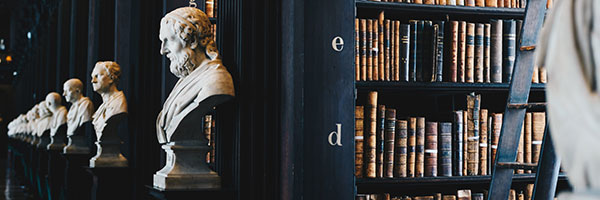Learning Outcomes
History Graduate Program Learning Outcomes
Graduates of the program not only learn about the past, they also develop a capacity for careful and rigorous thought, cultural competence, and abilities that promote success in careers throughout the global economy. These learning outcomes include content knowledge, habits of mind, and practical skills.
Content Knowledge
Identify key events that express change over time
Identify and explain the causes of both continuity and change
Describe the influence of political ideologies, economic structures, social organizations, cultural perceptions, and natural environments on historical events
Discuss the ways in which factors such as race, class, gender, ethnicity, region, and religion influence historical narratives
Habits of Mind
Explain how people have existed, acted, and thought in particular historical periods
Explain what influence the past has on the present
Develop an international perspective on the past that addresses the cumulative effect of global exchange, engagement, and interdependence
Interpret the complexity and diversity of situations, events, and past mentalities
Compare eras and regions in order to define enduring issues
Recognize and understand a range of viewpoints
Compare competing historical narratives
Challenge arguments of historical inevitability
Analyze cause-and-effect relationships and multiple causation
Identify and address the problem of evidentiary ambiguity
Practical Skills
Evaluate competing claims
Differentiate between historical facts and historical interpretations
Assess the credibility of primary and secondary sources
Formulate historical questions
Obtain historical data from a variety of sources
Recognize the discipline's standards for accurate and ethical research
Construct and support a coherent and compelling historical argument
*The History Department participates and promotes “History Tuning” at the State level through USHE, and at the national level through the American Historical Association. The History Tuning program was founded, and funded, by the Lumina Foundation. This faculty-led process has identified History Learning Outcomes for the discipline and is being implemented in all higher education institutions in the state. The History tuning program synchronizes well with the University’s move towards integrating Learning Outcomes into the core curriculum and by providing meaningful modes of curricular assessment. In the History department, for undergraduate assessment, this has taken the form of a new methodologies course (History 3100), the existing capstone senior seminar (History 4990) acting as an assessment tool, and a graduating seniors exit survey centered on Learning Outcomes




